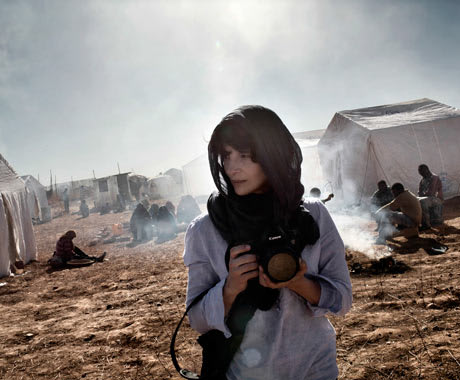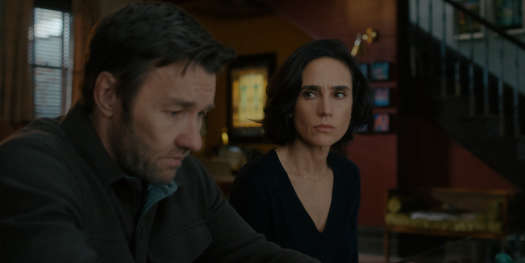Erik Poppe's timely 1,000 Times Good Night opens with a war photographer capturing a teenage suicide bomber getting strapped to a vest of explosives — a slow-moving affair as disquieting as it sounds, and the fulcrum for a film based on the Norwegian director's experience as a war photographer. But rather than focusing on the craft, Poppe turns his attention to the personal tolls taken by such volatile work, and brings a novel perspective to a field that is particularly resonant today.
Poppe's war photographer is Rebecca, played by the unflappable Juliette Binoche. For most journalists, riding in a vehicle about to explode in minutes would promptly end the call of duty, but Rebecca hops in and waits until the last minute to escape, inevitably getting injured in the blast. After being hospitalized and then released into the care of her family, the rattled photographer tries to readjust to a quiet life in Ireland with her husband (Nikolaj Coster-Waldau) and two daughters. But what's normal to those living in secure communities is abnormal to someone working in high-conflict zones around the world, and Rebecca struggles to adapt.
A further complication is the growing resentment from her teenage daughter, who doesn't understand why her mother consistently risks her life for work. Poppe takes his time with the wrought family dynamics, which, at first, are worthwhile for the role reversal alone: we typically encounter men in high-risk occupations whose loyal families are taken for granted, but this drama unfolds with a woman at the centre of her family's strife. Still, when Rebecca is forced to decide between family and career, uncomfortable gender binaries emerge and plunge the film into well-worn terrain.
The intimacy between Poppe and his subject matter makes 1,000 Times Good Night a poignant film that is rendered more meaningful given the situations facing Western journalists in the Middle East. That doesn't mean it couldn't stand to be less plodding, moody — Binoche must have reached her threshold for forlorn walks along Irish moors — and predictable, but insights on a complex and often misunderstood profession compensates for most of its shortcomings.
(Film Movement)Poppe's war photographer is Rebecca, played by the unflappable Juliette Binoche. For most journalists, riding in a vehicle about to explode in minutes would promptly end the call of duty, but Rebecca hops in and waits until the last minute to escape, inevitably getting injured in the blast. After being hospitalized and then released into the care of her family, the rattled photographer tries to readjust to a quiet life in Ireland with her husband (Nikolaj Coster-Waldau) and two daughters. But what's normal to those living in secure communities is abnormal to someone working in high-conflict zones around the world, and Rebecca struggles to adapt.
A further complication is the growing resentment from her teenage daughter, who doesn't understand why her mother consistently risks her life for work. Poppe takes his time with the wrought family dynamics, which, at first, are worthwhile for the role reversal alone: we typically encounter men in high-risk occupations whose loyal families are taken for granted, but this drama unfolds with a woman at the centre of her family's strife. Still, when Rebecca is forced to decide between family and career, uncomfortable gender binaries emerge and plunge the film into well-worn terrain.
The intimacy between Poppe and his subject matter makes 1,000 Times Good Night a poignant film that is rendered more meaningful given the situations facing Western journalists in the Middle East. That doesn't mean it couldn't stand to be less plodding, moody — Binoche must have reached her threshold for forlorn walks along Irish moors — and predictable, but insights on a complex and often misunderstood profession compensates for most of its shortcomings.




